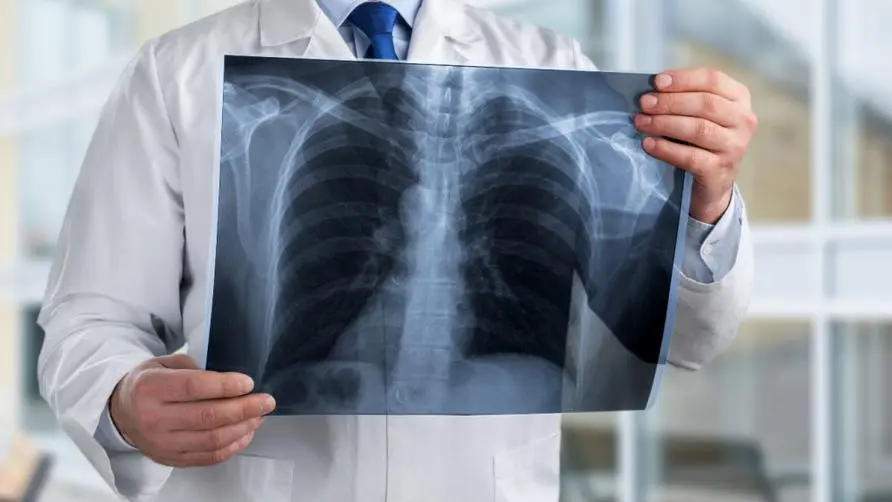Ovarian cancer in Taiwan is 10 years younger! Is it related to 2 kinds of gynecological diseases? Doctor: Be alert if you have recurring abdominal pain or gastrointestinal discomfort!

Ovarian cancer in Taiwan is 10 years younger! Is it actually related to two gynecological diseases?
Female friends, beware! Repeated abdominal pain and gastrointestinal symptoms within a short period of time, could it be a warning sign of gynecological cancer or a sign of “ovarian cancer”? According to the Taiwan Ministry of Health and Welfare, Health Promotion Administration, ovarian cancer ranks seventh among the top ten cancers in women, surpassing cervical cancer and becoming the leading cause of death from gynecological cancer. Dr. Ho Chi Ming, director of the Gynecological Cancer Center of Cathay General Hospital, said in an interview with “healthorn” that the number of ovarian cancer cases has increased in recent years, with the median age of about 51 and 52 years old. Compared with foreign countries, it is nearly 10 years younger. There is indeed an increase in the number of people and a younger age. .
Dr. Ho Chi-Ming pointed out that in addition to being relatively young, Taiwanese ovarian cancer patients also have a high proportion of “bright cell carcinoma”, which is an epithelial cell carcinoma in the histopathological classification of ovarian cancer, ranging between 18% and 20%. Cancer is considered to be related to gynecological problems such as endometriosis and chocolate cysts. Comparing the incidence ratio of endometriosis and chocolate cysts in Taiwanese people, there is indeed a potential correlation that deserves women’s attention.
Should we pay attention to ovarian overwork and chocolate cysts? Ovarian cancer risk factors
“Why is it necessary to establish World Ovarian Cancer Day (5/8)? Because if prevention and treatment of ovarian cancer are not promoted as early as possible, the mortality rate of ovarian cancer will increase by 42% in 2040, and nearly half of ovarian cancer patients will die, and the number may exceed 400 Thousands of people!”
Dr. Ho Chi-ming said that there is currently a lack of effective screening tools for ovarian cancer such as cervical smears, and early symptoms are not obvious, so early diagnosis is easily overlooked. In addition, the exact cause of ovarian cancer is still unclear. It can only be speculated that it is related to environmental factors and genetic mutations. For example, women suffering from endometriosis, statistics show that the risk of ovarian cancer will increase several times. Some causes of ovarian cancer are also related to excessive ovulation of eggs for a long time.
In addition, BRCA1 and BRCA2 gene mutations are also risk factors for ovarian cancer, but ovarian cancers directly caused by genetic inheritance only account for 9%-10% of the total. In other words, more than 90% of ovarian cancers have no main cause. Women with a family history, never been pregnant, and are over 50 years old should pay special attention to symptoms related to ovarian cancer.
Be alert if you experience recurring abdominal pain or gastrointestinal discomfort! Common symptoms of ovarian cancer
Because the ovaries are located deep in the pelvic cavity, early-stage ovarian cancer often has no obvious symptoms. Dr. Ho Chi Ming pointed out that according to World Ovarian Cancer Day recommendations, the five major symptoms of ovarian cancer that need to be paid attention to are: abdominal distension, loss of appetite, easy feeling of fullness, abdominal pain/back pain, frequent urination or urinary tract symptoms caused by tumor compression. Some patients think that the increase in abdominal circumference is just gaining weight, or they seek help from a gastroenterologist because of recurring abdominal pain and gastrointestinal discomfort, only to accidentally discover ovarian cancer after an ultrasound examination.
“The survey found that 69% of the public had insufficient knowledge about ovarian cancer, and as many as 91% of ovarian cancer patients had only one or two symptoms, or even no symptoms at all, before diagnosis. Women must be called to be more vigilant, especially when abdominal pain, When you have abdominal bloating, remember to go to your gynecologist to check if there is any ovarian problem!”
Dr. He Zhiming reminded that if women have symptoms of abdominal or gastrointestinal discomfort and cannot find a clear cause, they can consult a gynecologist to help diagnose through intrapelvic examination, abdominal or vaginal ultrasound examination. For high-risk groups such as postmenopausal women and those with a family history of hereditary disease, ultrasound combined with Doppler examination and blood testing can be used to test the tumor indicator CA-125. For women with a clear medical history in immediate family members, it is recommended to arrange relevant regular examinations after the age of 30.
The cure rate for advanced ovarian cancer is only 30%! Ovarian cancer treatment and prognosis
Dr. Ho Chi-Ming pointed out that the cure rate for early-stage ovarian cancer can reach about 80%. Currently, early-stage ovarian cancer accounts for about 50-55% in Taiwan, indicating that nearly half of ovarian cancers are not discovered until they are late. Once ovarian cancer progresses to the third or fourth stage, the cure rate will significantly deteriorate to less than 30%, and about 70% of patients will die from ovarian cancer. The most dangerous thing is that when symptoms such as severe ascites and abdominal distension appear, most ovarian cancer tumors have reached a certain level and have even metastasized.
Early-stage ovarian cancer has a relatively good cure rate, while late-stage ovarian cancer with genetic mutations can currently be maintained with drugs such as PARP inhibitors. In addition, some malignant serous ovarian cancers are related to the fallopian tubes. Women who have been evaluated by obstetricians and gynecologists and have no desire to have children will be recommended to undergo preventive fallopian tube resection to reduce the risk of ovarian cancer in the future.
Dr. He Zhiming reminded that 90% of ovarian cancer occurs in the acquired environment. Before effective screening tools are invented, women must understand their risk factors and pay attention to the warning signs of ovarian cancer. Once the gastrointestinal tract or urinary tract is unclear, Regardless of the cause and symptoms, you should consult a gynecologist as soon as possible to avoid missing the opportunity to detect ovarian cancer early.
Further reading:





